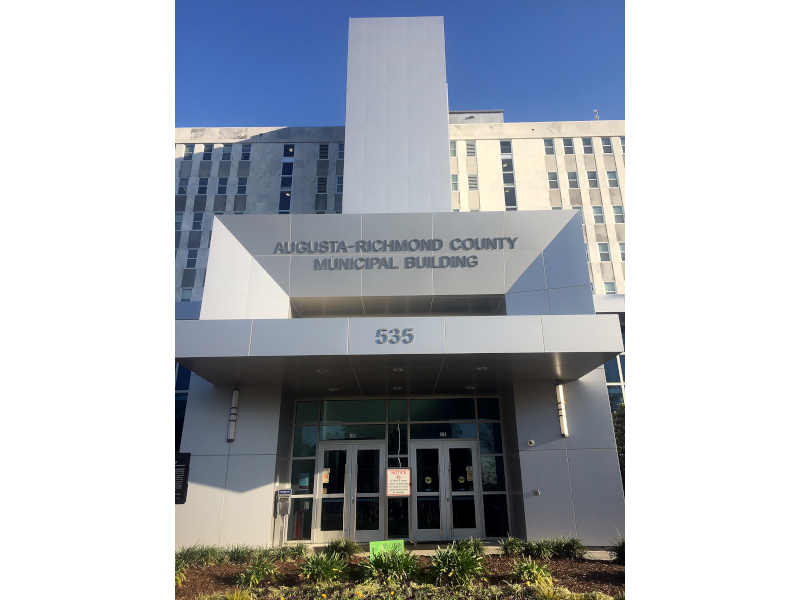CARES Act funding and a sales-tax adjustment by the Georgia Department of Revenue last year kept the city of Augusta’s financial boat right side up when COVID-19 threatened to turn it upside down, according to city Finance Department Director Donna Williams.
Williams reported “good news” and “bad news avoided” in her preliminary 2020 financial report to the Augusta Commission on Thursday with the caveat that the results won’t be final until June 30.
MORE: Significant Funding Secured to Remediate Lead Hazards in Augusta Homes
The good news included $10.3 million in Georgia CARES Act funding that created year-end surpluses in these funds:
— General Fund, $3.8 million
— Fire Protection, $2.7 million
— Water & Sewer, $3.4 million
— Garbage Collection, $819,000
— Augusta Regional Airport, $1.12 million
— Stormwater Utilities, $438,000
[adrotate banner=”19″]
Other CARES Act funding for restricted use included:
— $4.82 million from HUD for Housing and Neighborhood Development
— $6.42 million from the Federal Transportation Administration for transit
— $19.38 million from FFA for Augusta Regional Airport.
T-SPLOST (TIA) collections were $850,000 more than budgeted and $407,000 higher than in 2019, which is a sign of growth, Williams told the commission.
Williams also reported receiving the final outstanding approved claim from the 2014 ice storm, a $1.01 million payment from FEMA.
“That check effectively closes the book on that chapter of Augusta’s financial story,” she said.
As expected, sales tax collections were dramatically impacted by the pandemic, Williams said.
Regular collections during 2020 were 5.55% ($2.2 million) lower than the previous year. About $1 million of that may be attributed to the postponement of the Masters Tournament in April.
Meanwhile, the sales tax distribution for August which was received in September included a $2.06 million audit adjustment.
The Georgia Department of Revenue explained it this way: “During an audit, it was discovered that several companies that were using the same tax software were misreporting the allocation of sales taxes between the state and local governments. The time period involved was from 2015 to 2018, and the issue was resolved starting in 2019.”
The timing of the adjustment was fortuitous. When the audit adjustment is included, collections for 2020, are $148,000 lower than the previous year.
[adrotate banner=”23″]
“Increased pandemic related expenditures for federally required leave, PPE, health-care costs and other costs were offset by $10.3 million in CARES Act funds,” Williams said.
Last year, Augusta had about 70 days of “old normal;” then from March 13 through March 16 came a rapid succession of emergency declarations by the president, governor, and mayor. Businesses were closed, public facilities closed, employees worked in staggered shifts or remotely, and the world started to feel the impact of COVID-19. There were new
restrictions on gatherings, businesses allowed to operate – and the levels allowed, moratoriums on evictions and utility cutoffs.
Cleaning supplies, PPE and technology items were in short supply and more costly.
Operating costs increased as income decreased from utility payments, licenses, court-related transactions and a halt to all recreation programs. Meanwhile, sales tax revenue decreased because of closed businesses, hotels, bars and restaurants.
The $10.3 million in CARES Act funding paid:
— $2 million for Covid-19 medical expenses
— $1.46 million for hazard pay
— $1.23 million for PPE and equipment
— $617,000 for Family First Coronavirus Response Act
— $917,850 for public safety increased overtime
— $250,000 for election expenses
MORE: SPLOST 8 Gets Voter Approval
The commission also gave Paine College $1.4 million of the CARES act money. And some $2.32 million is unallocated but is expected to be needed to make up the $1 million in lost revenue from the elimination of alcohol licenses, as well as the cost of renting the James Brown Arena for mass jury selections, health-care costs and PPE.
Sylvia Cooper is a Correspondent with The Augusta Press. Reach her at sylvia.cooper@theaugustapress.com.
[adrotate banner=”50″]











